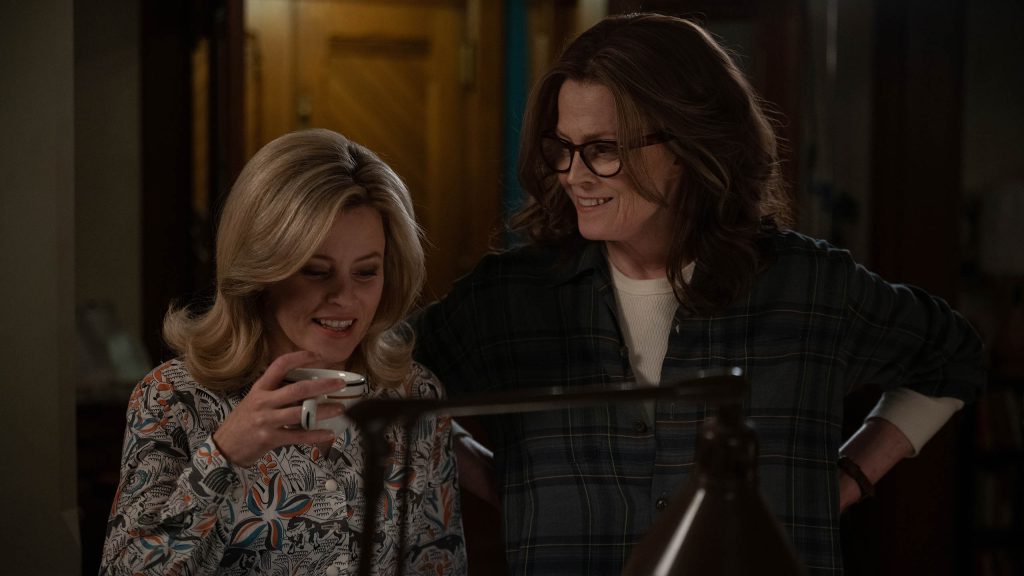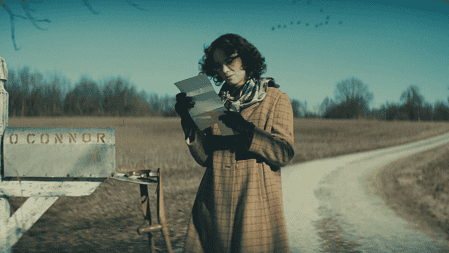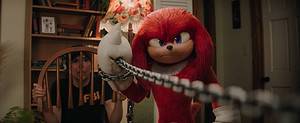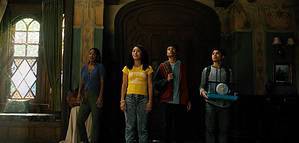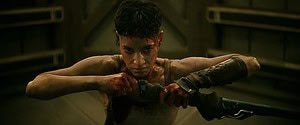Call Jane was previously reviewed during the 2022 Sundance Film Festival. Please find that review below:
The opening moments of Carol screenwriter Phyllis Nagy’s feature directorial debut, Call Jane, signals an unnamed shift in the general consciousness. We first see the elegantly dressed suburban housewife Joy, confidently played by Elizabeth Banks, as she walks down the corridor of a Chicago hotel where her husband, Will (Chris Messina), is attending an event for his law firm. The year is 1968 and political protests are becoming more frequent in a nation ripe for upheaval. Outside of the opulent doors is a row of police officers preparing for a showdown. The chant of “the whole world is watching” brings to mind the recent Trial of the Chicago 7, which is actually a fair comparison for a film that likewise aims to take a pivotal moment in history and distill it down to its most accessible form. This unassuming conservative woman is intrigued by this passion, but she is unaware of the courage she will soon have to summon to fight her own personal battle.
Joy was never a complete square to begin with, but there is a sense she is considering new possibilities in line with the spirit of the time. Joy has a 15-year-old daughter, Charlotte (Grace Edwards), who is very sheltered herself but cool enough to have some Velvet Underground records that Joy dances around to without a care. She is in the early stages of expecting her second child, and it is taking a real toll on her body with disorientation and fainting being chief symptoms. When her doctor delivers a diagnosis of congestive heart failure that can only be reversed by her not being pregnant, an obvious life-saving procedure becomes a maze of frustrating bureaucracy where she holds no power.
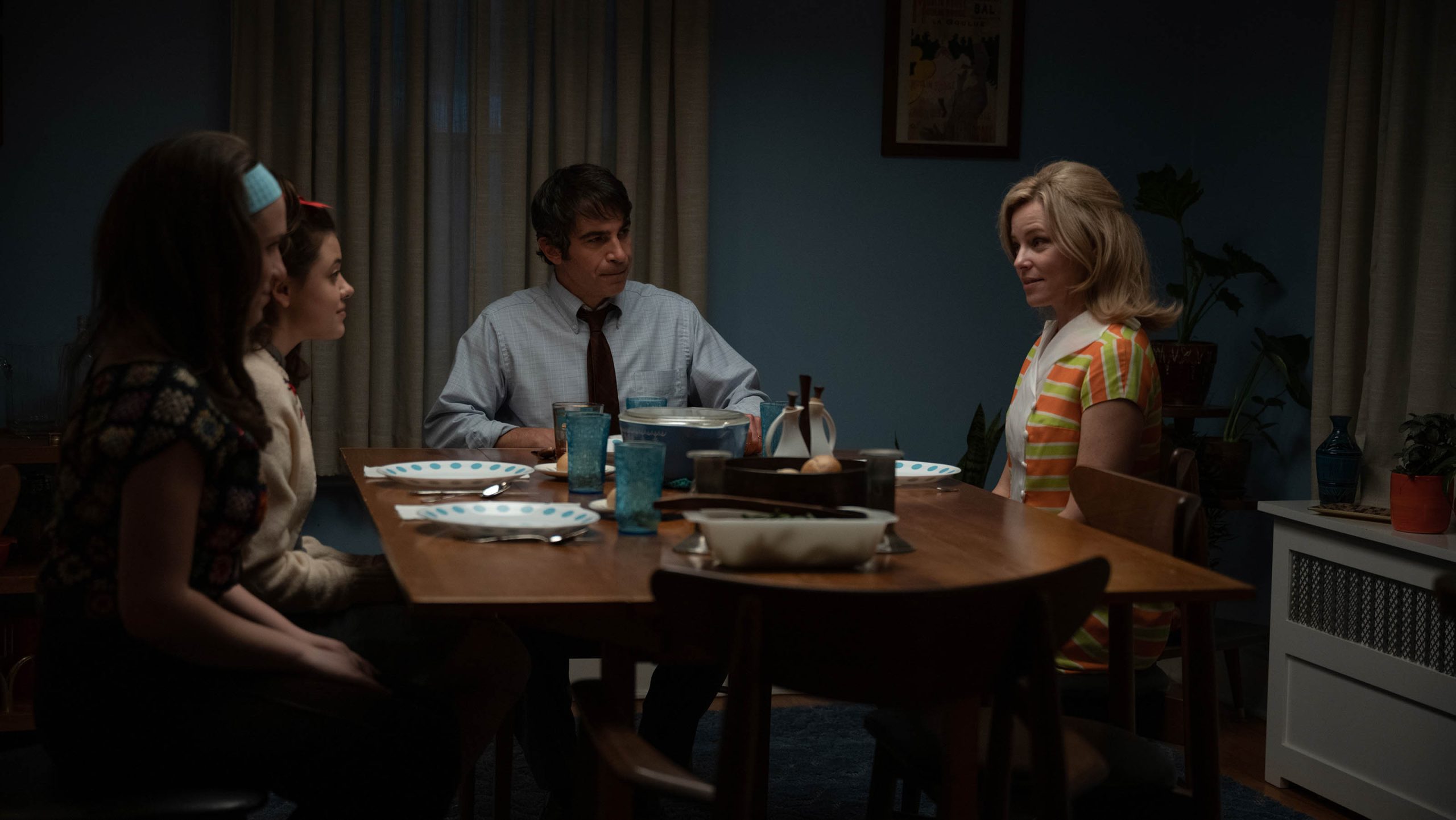
It is no grand revelation to say that the fight in Call Jane is shamefully still being fought to this very day. As the Supreme Court considers several cases with the potential to roll back the freedoms granted by Roe v. Wade, women are begging to be granted the simple freedom of choosing what to do with their bodies. The one legal option Joy has at this time is to seek the hospital board’s permission to receive a therapeutic abortion. The scene with the all-male panel debating Joy’s fate as if she is not right in front of them is an obvious parallel to the current politicians treating women as props in their quest for power. Of course, Joy’s appeal is denied, and with that her death sentence is all but signed.
This is not just a heart wrenching quest for Joy to terminate her pregnancy; we have already covered that ground quite brilliantly in the recent Never Rarely Sometimes Always and Happening. Joy does try to get around the ruling in ways both practical, seeking a diagnosis of insanity, and tragic, serious consideration of a suggestion to fall down a staircase. The strait-laced Will is too virtuous to attempt to pull any strings within the medical establishment, as he has to protect his career. Her final option is in the film’s title: “call Jane.” A flyer connects her with the underground network that helps desperate women secure safe, illegal abortions. The termination of Joy’s pregnancy is just the beginning of this story. She has gotten her life back, and, when called upon, she is increasingly dedicated to helping other women achieve the same goal.
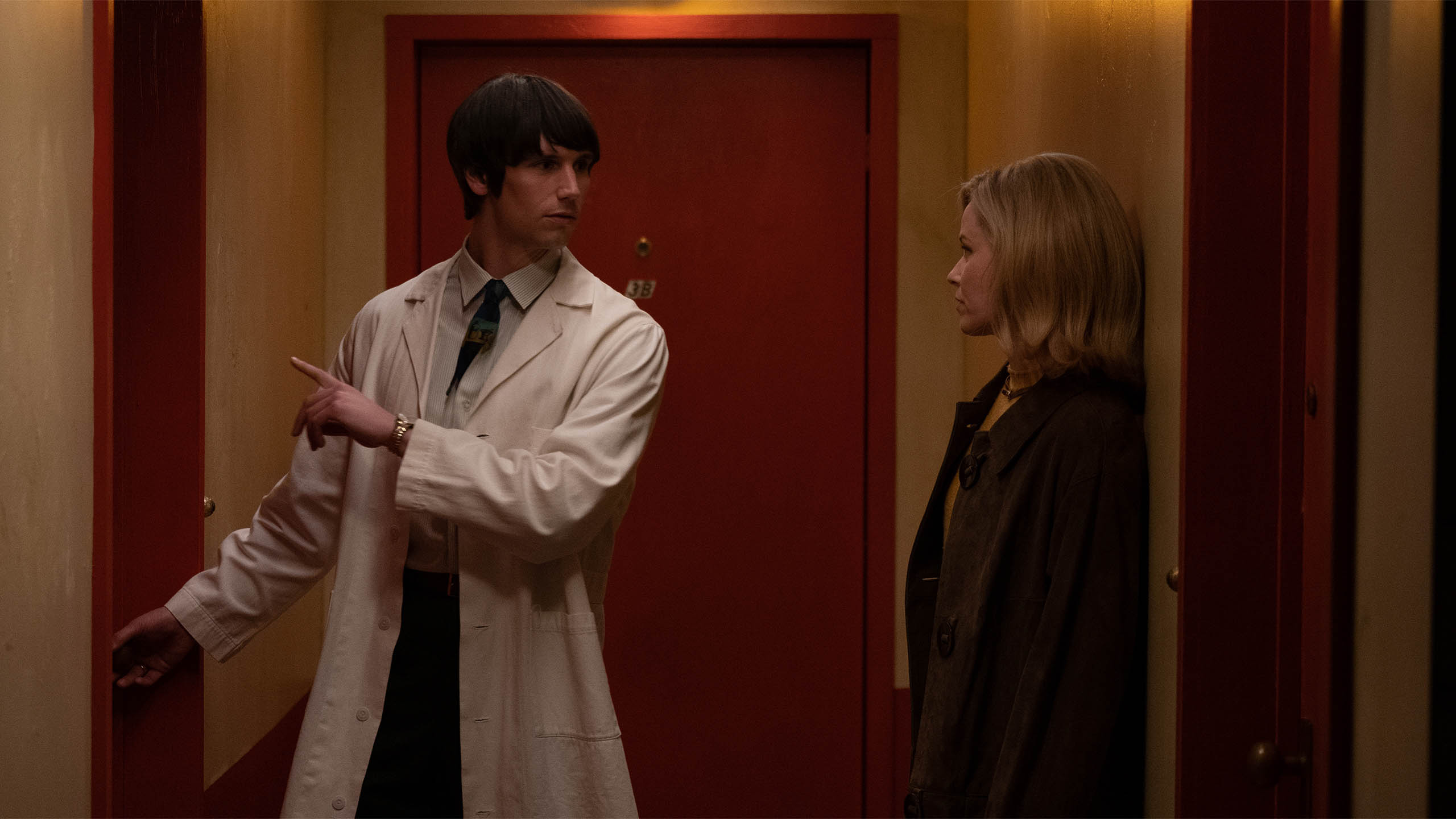
The movie really comes alive when Joy becomes enmeshed in the world of Jane. Led by the fierce Virginia (Sigourney Weaver), Jane is shown to be a wide assortment of women from different backgrounds who want to help. Of course, complicating this is Dean (Cory Michael Smith, Gotham), the resident doctor performing the abortions who is driven strictly by money rather than any sense of altruism. As the Black Power advocate, Gwen (Wunmi Mosaku), fiercely argues, the cost of the procedure disproportionately affects people of color who tend to be lower income. Screenwriters Hayley Schore and Roshan Sethi attempt to pack a lot of different facets into the Jane storyline, so much so that certain interesting tidbits get little more than a cursory mention before moving on to an additional point.
While this can be a bit overstuffed, it ends up being preferable to what we get when we are not with Jane. The script fails to go beyond two-dimensional depictions of various supporting characters. Will is mostly absent as her husband who does not seem to question why she never seems to bring any art back from the class she claims to be attending so often. Sure, he is concerned about the lack of a home-cooked meal, but that is easily rectified by Joy’s best friend and neighbor, Lana (Kate Mara), who has mostly been inebriated since losing her husband. Mara is all but wasted in a subplot that adds nothing but annoyance for the audience. Joy’s daughter, Charlotte, likewise does not seem to serve much of a purpose outside of manufacturing drama.
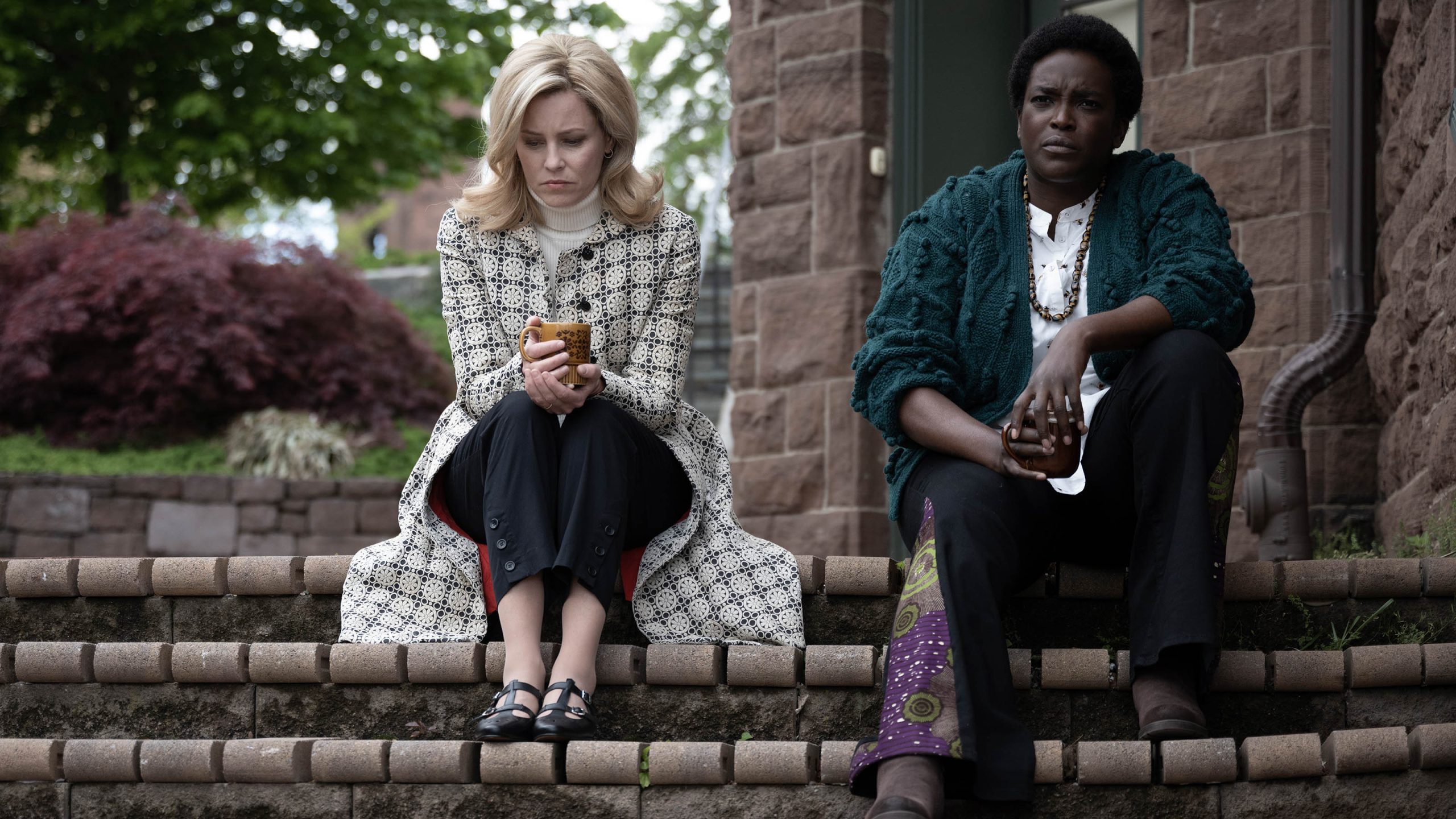
It is probably important to point out that, although this is based on true events, the character of Joy is fictional. In some respects, this aids the story as the creative team is able to give the audience a cipher which shows that women seeking abortions are not one thing – they can even be a conservative housewife. If this story was going to weave in more fictional elements, though, why does it never really feel like it has real stakes? It is clear that these women are running an illegal enterprise, and there are plenty of references to mob protection, but all of the irregular driving patterns and secret knocks amount to almost nothing. One of the most tense moments in an abortion drama probably should not be a woman withdrawing money from her bank account. Everything is just a bit too easy for these women, and as you can hear in the companion Sundance documentary The Janes, it was not always that easy.
The worst thing that can be said about Call Jane is that it is extremely conventional. This is not necessarily a bad thing; those still on the fence about the abortion issue who most need to see this film would probably be turned off by something as unflinching as Happening. For an abortion drama, Call Jane is very warm and inspiring. This is a story that deserves to be known and appreciated by a large audience, and this is the type of film that goes down easy for anyone at least willing to give it a shot.
For those looking for something more creatively daring, you will be disappointed. It is not surprising that the best moment of the film leans closer to the aforementioned “arthouse” style of storytelling. An uninterrupted demonstration of the termination procedure is shown in a tasteful, non-exploitative manner which makes you hold your breath while simultaneously taking away the mystery that makes abortions such a scary concept for so many.
Phyllis Nagy provides a space for numerous incredibly talented performers to do some of the best work they have done in quite some time, if not their entire career. Her approach is to give this material a light touch, which results in this being the rare abortion drama that you can label “enjoyable.” With a little more care to flesh out some of the secondary characters and injection of a bit more dramatic tension, this could have been a really effective crowd-pleaser. While still very much worth watching, it never rises above the level of being “good.” For many, that may be enough. You feel a sense of achievement at the end of this inspirational tale, but when you snap back into reality you quickly realize there is still so much to do.
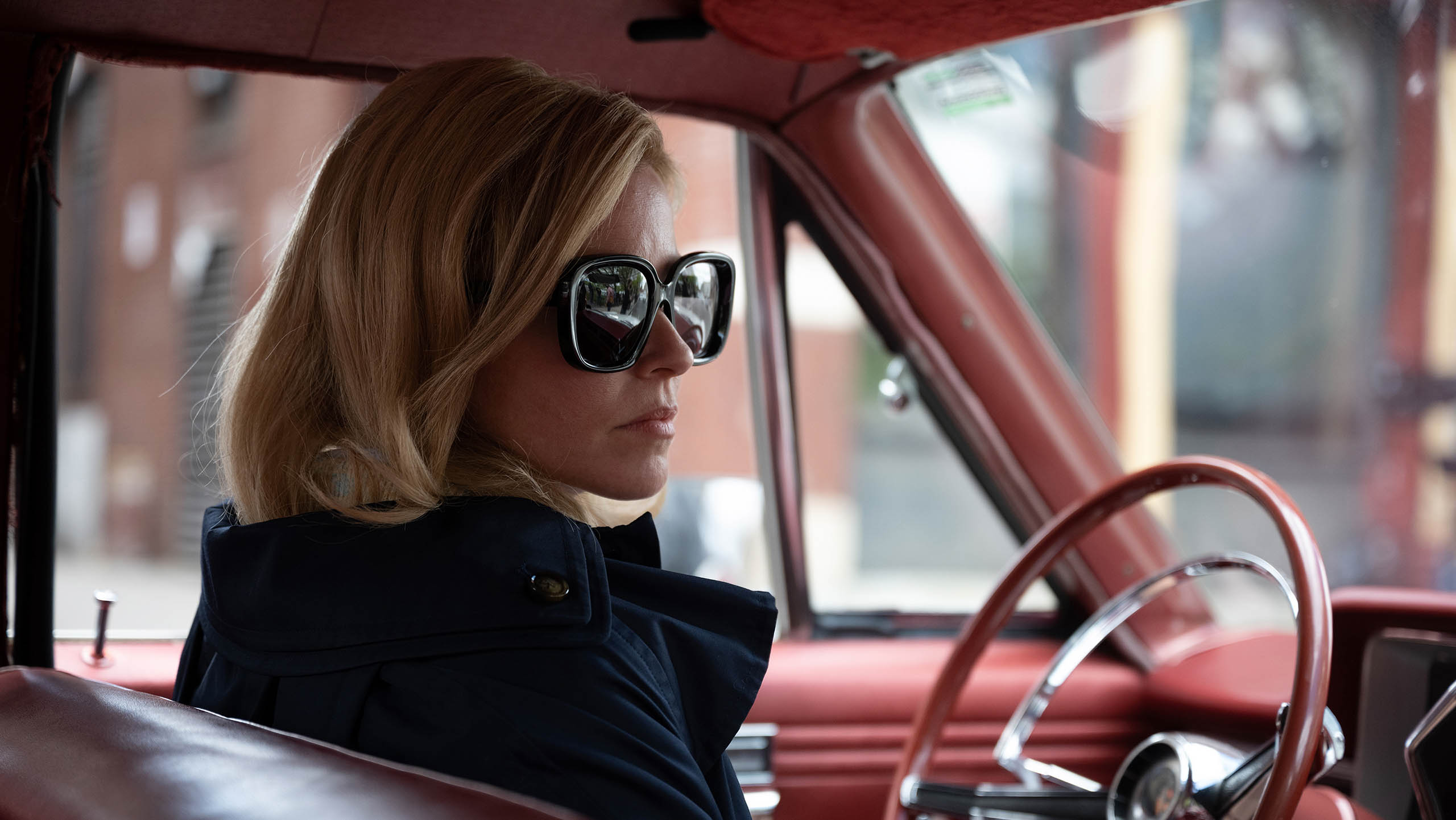
Video Quality
Lionsgate Home Entertainment brings Call Jane to Blu-Ray with a stellar 1080p video presentation in its original 1.85:1. Every single location in this film provides a great example of the depth on display, from the spacious interior of Jen’s house to the cramped quarters of the procedure room. The production design and the fabrics of the clothing provide really clear textural details. The film has some great splashes of colors within some of the clothing and nature itself, but the color palette leans to the muted side of the spectrum. The highlights show no signs of blooming, and the black levels are deep and with no discernible digital noise. There is a small amount of banding against certain gradients, but it is not a persistent issue. Flesh tones are natural with a grand amount of detail present in close-ups. Lionsgate has delivered a really capable presentation for this one.
Audio Quality
This Blu-Ray comes with a rock solid DTS-HD 5.1 Master Audio track that handily accomplishes everything that is asked of it. Dialogue is the showcase feature of the film, and it always comes through clearly without being challenged by any competing sounds. Kinetic sequences are few and far between, but the environmental sounds of specific interiors engage the surround speakers in a nifty way. Ambient sounds of the radio and television are precisely placed in the rear channels. The score in the film comes through the speakers with perfect fidelity. The movie is pretty light when it comes to the low end response, but it adds a bit of texture to certain moments. The audio track brings this world to life exactly as it needs to. There are optional English SDH and Spanish subtitles provided.
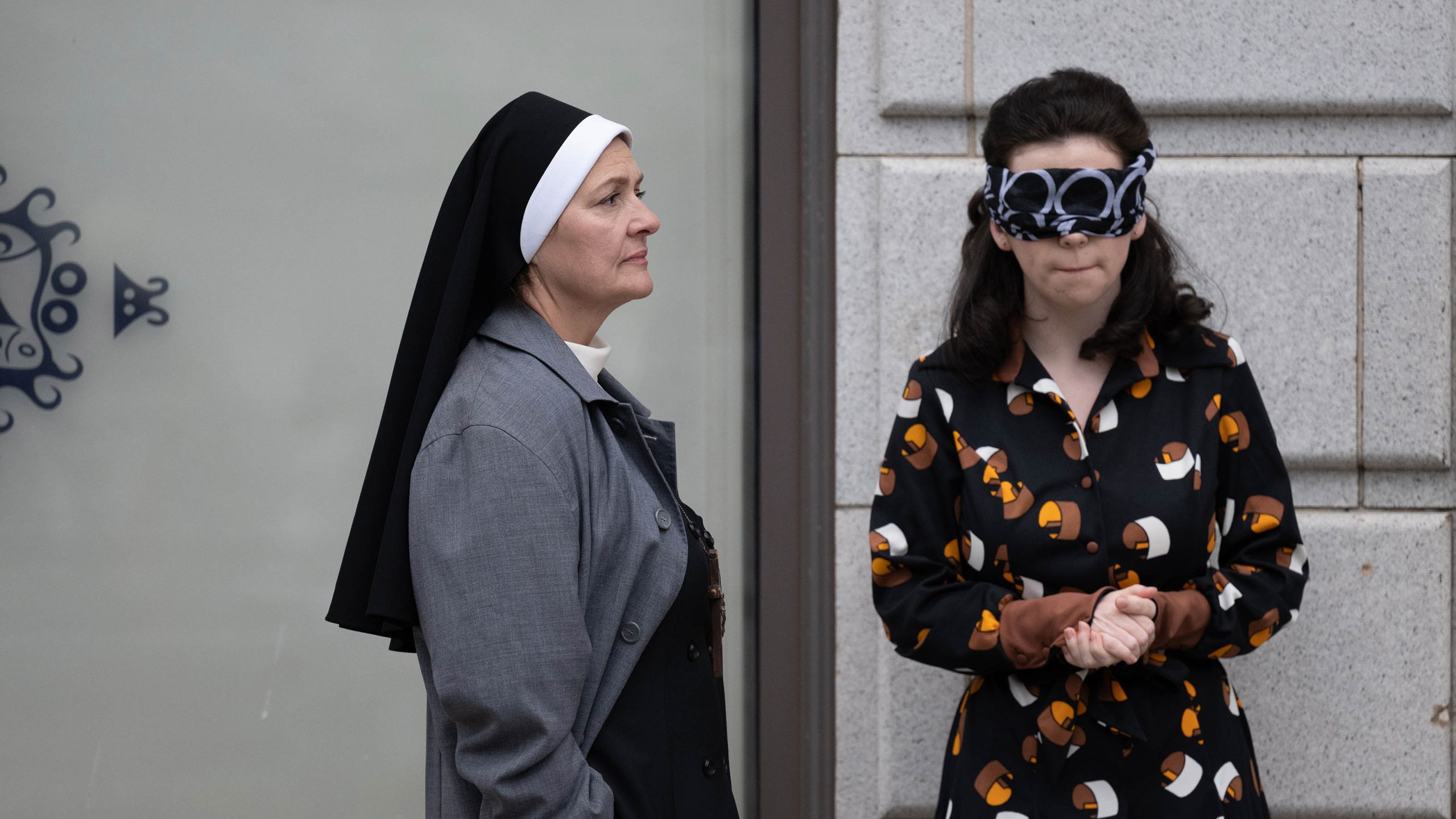
Special Features
- Audio Commentary: Director Phyllis Nagy and Producer Robbie Brenner provide a decent commentary track in which they discuss their decision to tell this story, shooting on location, the careful production design, what the actors bring to their characters, the challenges faced during shooting, subtle moments that mean a lot and much more.
- You Are Not Alone – The Making Of Call Jane: A pretty informative 24-minute making-of featurette in which the cast and creative team discuss the origins of the project, the intention behind the telling of this story, the mixture of fact and fiction, the complexity of the characters, the direction of Phyllis Nagy and more.
- Selected Deleted Scenes: A three-and-a-half minute selection of unused footage in which Charlotte makes dinner for the family, Joy getting fed up by her friends and her doctor, and more that is worth exploring.
Final Thoughts
Call Jane takes on the very difficult task of making an extremely hot-button and timely issue palatable for a mainstream audience. This does take away some of the bite that hardcore cinephiles may want, but it is far from toothless and does a great job of getting this important issue out to the audience in an inviting manner. The direction is confident, and Elizabeth Banks turns in some of the best dramatic work of her career. Lionsgate Home Entertainment has released a Blu-Ray with a great A/V presentation and a couple of great special features. If you are open to a mainstream-friendly exploration of a vital topic, give this one a spin. Recommended
Call Jane is currently available to purchase on Blu-Ray, DVD and Digital.
Note: Images presented in this review are not reflective of the image quality of the Blu-Ray.
Disclaimer: Lionsgate Home Entertainment has supplied a copy of this disc free of charge for review purposes. All opinions in this review are the honest reactions of the author.
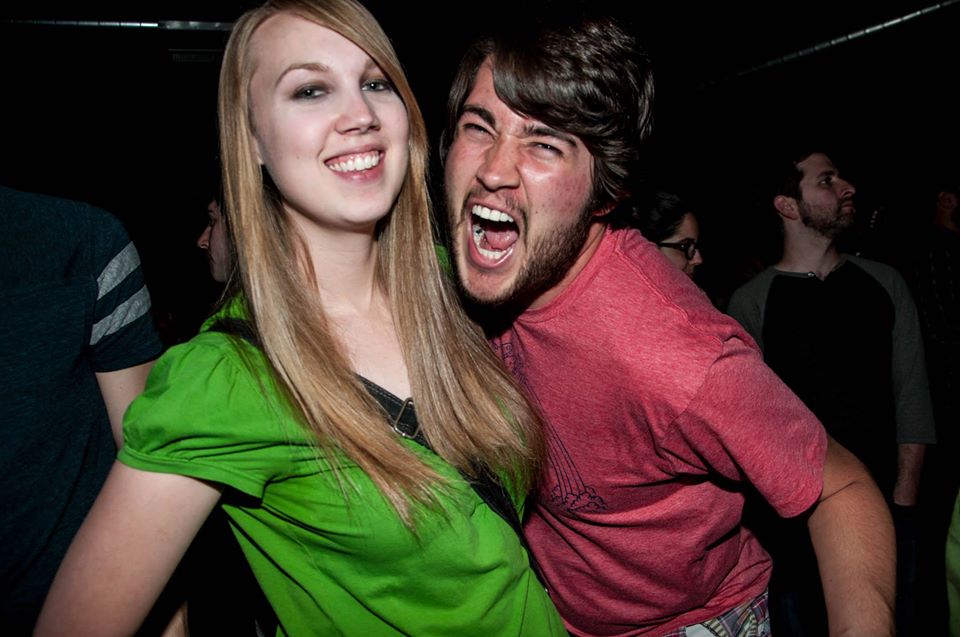
Dillon is most comfortable sitting around in a theatre all day watching both big budget and independent movies.


